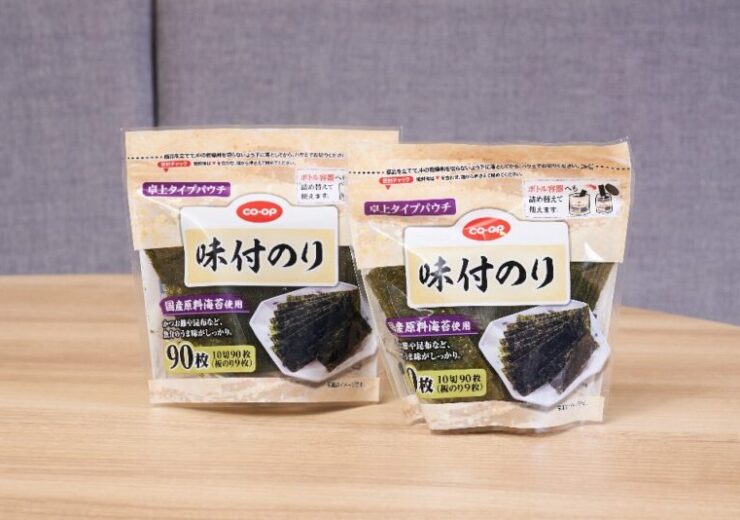During the initial phase of the partnership, the packaging material for a seaweed snack will be produced using bio-based raw materials instead of fossil ones, with further applications planned

A product image of CO-OP’s seaweed snack in new plastic packaging. (Credit: JCCU)
Neste, Mitsui Chemicals, and its subsidiary Prime Polymer have collaborated to develop more sustainable food packaging solutions for CO-OP, a brand of the Japanese Consumers Co-operative Union (JCCU).
During the initial phase of the partnership, the packaging material for a seaweed snack will be produced using bio-based raw materials instead of fossil ones.
The companies want to include bio-based raw materials in the packaging of their future products.
Finland-based Neste offers renewable Neste RE, a polymer feedstock derived only from bio-based raw ingredients.
The feedstock is then converted into renewable polypropylene under the trade name Prasus by Mitsui Chemicals and Prime Polymer, which is then used in food packaging for JCCU.
Neste, an oil refining and marketing company, said the packaging manufactured from renewable resources has the same quality and functionality as packaging made from fossil fuels.
The main difference is the lowered carbon footprint of the packaging and the replacement of fossil materials during its production.
The plastic packaging is given renewable material according to a mass balancing approach.
The seaweed snacks packaging for CO-OP is said to be the first to secure the Japanese Eco Mark certification.
Neste renewable polymers and chemicals business unit sustainable partnerships APAC head Lilyana Budyanto said: “Change begins with small things. In this case, it’s slices of dried seaweed.
“However, the impact of renewable plastics packaging isn’t small at all. It’s a crucial contributor to the sustainability transformation of the plastics industry and reducing emissions along the value chain.
“We are looking forward to the cooperation with Mitsui Chemicals, Prime Polymer and JCCU evolving.”
